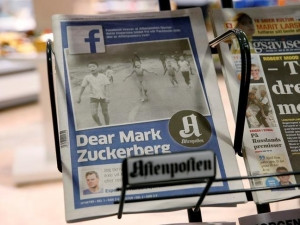
As Facebook's influence grows, what it decides to show (and not show) on its platform can have far-reaching implications. This argument came to the fore when users reacted to the social network taking down an iconic war image last week.
The iconic Pulitzer prize-winning picture of naked nine-year-old Kim Ph'uc running from a Napalm attack during the Vietnam War was censored by Facebook for "nudity", leading to a massive outcry by users who accused Facebook of history censorship.
The company bowed to public pressure and reinstated the photograph.
Julia Carrie Wong tweeted: "What if Facebook had the kind of power it has now during the Vietnam War? What if no one had seen this photo?"
Twitter user Mark Wight said it was: "Disturbing censorship by Facebook of one of the most iconic images of conflict in visual culture."
Journalism professor and author Dan Gillmor questioned why it was not sorted sooner: "The SECOND anyone with clout and common sense at Facebook heard about 'Napalm Girl' takedown, he/she should have ordered it put back up."
Tim Harford tweeted that the: "Lesson here is that we rely too much on social media," and Jeffrey Zeldman said: "Facebook makes the world more stupid."
The saga began when the image was originally shared by Norwegian daily newspaper, Aftenposten, and was then promptly removed by Facebook from there and everywhere else it was posted.
After criticism from Norway's prime minister, Erna Solberg, and the newspaper, saying the social network was undermining democracy and censoring history, the company responded.
Facebook said it relooked at how its community standards were applied.
"An image of a naked child would normally be presumed to violate our community standards, and in some countries might even qualify as child pornography. In this case, we recognise the history and global importance of this image in documenting a particular moment in time."
It said it came to the conclusion that the value of sharing the historical image outweighs "the value of protecting the community by removal", so it will reinstate the image.
Facebook CEO Mark Zuckerberg has not commented on the issue.
Reuters reports Norway is a big investor in Facebook. Its $891 billion sovereign wealth fund, the world's biggest, had a stake of 0.52% in Facebook worth $1.54 billion at the start of 2016.
Earlier this year, the company came under fire for its 'trending topics' feature that users said were biased and suppressed conservative news. Last month, it changed the feature to make it more "automated" and eliminate the potential for human bias.
It is unclear if the decision to remove the Vietnam-war image was done by a machine or human.
Share